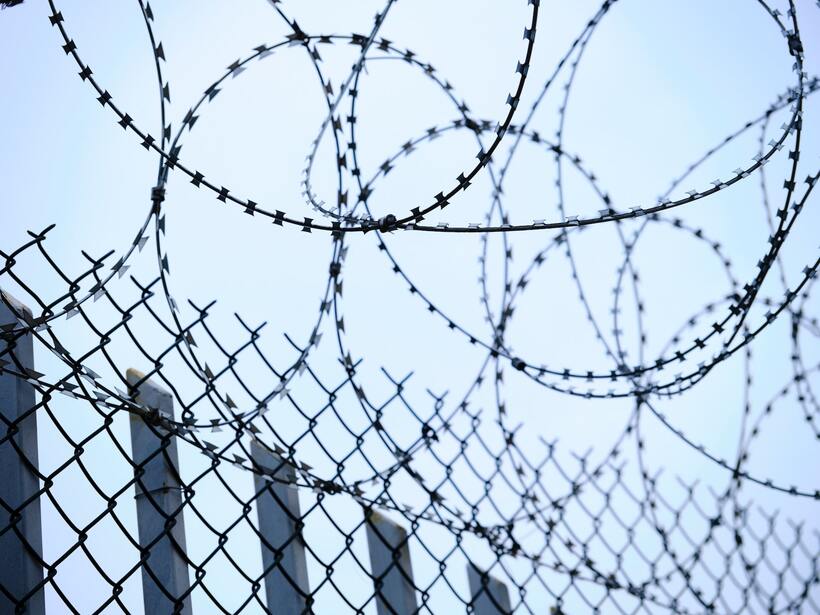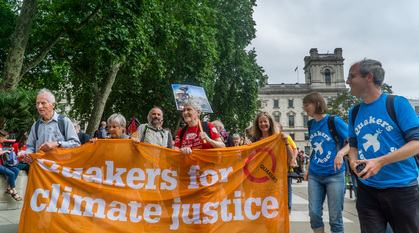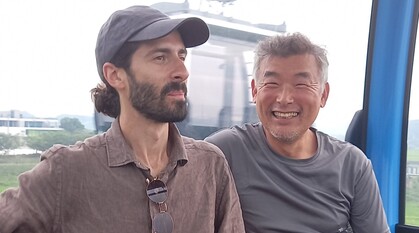Human rights under threat in the UK
2022 saw a continued trend of eroding democracy and human rights in the UK. Grace Da Costa examines the legislation, and looks ahead to government plans for next year.

Human Rights Day on 10 December was a chance to reflect on the situation in the UK. While the government used the day to champion human rights abroad, Quakers and our partner organisations have been drawing attention to issues closer to home.
Sweeping changes
Over the past year a swathe of measures have undermined human rights in the UK:
- Police, Crime, Sentencing and Courts Act – restricted the ability to protest, criminalised trespass, and increased fines and sentences for many offences in England and Wales. It undermines the rights to freedom of expression and assembly, the right to private family life, the right to liberty, and the peaceful enjoyment of possessions. It also breaches the prohibition on discrimination.
- Nationality and Borders Act – created a two-tier asylum system depending on how you arrive in the UK and laid the groundwork for the Rwanda plan. This undermines the UK's obligations under the Refugee Convention and numerous human rights, including the right to be free from inhuman or degrading treatment.
- Elections Act – introduced voter ID, further restricted civil society campaigning in the run-up to elections, and weakened the independence of the Electoral Commission. This undermines the right to free elections and the prohibition on discrimination.
- Judicial Review and Courts Act – made it harder for people to challenge public bodies' decisions in the courts in England and Wales. This undermines the right to effective remedy when someone's human rights are breached.
Why this matters
Quakers have long been advocates of democracy and human rights. This stems naturally from the belief that there is 'that of God in everyone' and the testimony to equality. Human rights and democracy are vital for each human being to flourish.
It's can be easy for people like me – white, middle class, good income – to see human rights as abstract concepts. But human rights apply to all parts of our lives, including health, social care, education, employment, policing, migration and criminal justice.
For the most marginalised people in society, human rights protections are particularly vital. All the erosions of human rights happening in our country disproportionately affect people from marginalised groups including people from migrant and ethnic minority communities. We cannot have a peaceful, just and truly diverse society while this oppression continues.
The erosion of democracy and human rights also makes it harder to bring about positive change in areas such as peace and climate justice.
Looking ahead
In 2023 the government plans to further erode human rights in the UK. The Public Order Bill, currently going through the House of Lords, aims to bring in all the measures that the Lords previously chucked out of the Policing Act for being too draconian. It includes:
- New offences including locking on, being equipped to lock on, tunnelling, and obstructing major transport works or major national infrastructure.
- Greater stop and search powers, including without suspicion.
- Police and court powers to put protest banning orders on people.
Sign the petition against the Public Order Bill.
The government also wants to bring in other measures, such as restricting the right to strike, and curtailing public bodies' ability to take part in boycotts, divestments and sanctions.
The Rights Removal Bill
Perhaps the biggest threat right now is the Bill of Rights Bill. The Bill of Rights Bill sounds like a good thing, but it would severely weaken rights protections in the UK. It would repeal the Human Rights Act, which enshrines the European Convention on Human Rights into UK law.
The Human Rights Act gives public bodies a positive duty to fulfil people's human rights. Under the new legislation, public bodies will only have to fulfil rights if it fits in with their resources and priorities. It would also halt progress on enshrining human rights into public bodies' policies and practices.
If someone's rights are violated they can bring a case in UK courts rather than having to go to the European Court of Human Rights in Strasbourg. The Bill of Rights Bill would make it harder to bring a case to a UK court, and would mean more cases have to go to Strasbourg – a much longer and much more expensive process.
You can find out more about the Bill of Rights Bill and how to campaign against it on the websites of Amnesty, BIHR and Liberty.
What does this mean for us?
There is a need to defend our democracy and human rights, right now. All of these issues are interlinked and we must be in solidarity with the people and communities who are targeted and affected by these bills.
We must continue to articulate our vision for a fairer, greener, more peaceful society. We should keep trying traditional methods to bring about positive change, such as writing to your MP, signing petitions, and protesting. But we might have to try new things too, such as quiet diplomacy and digital campaigning.
Quakers in Britain are part of coalitions against the Bill of Rights Bill and the Public Order Bill. We're also working on a new project on improving the underpinning values of democracy, particularly truth and integrity.
The project will be about trying to listen to people's views about the crisis of truth and integrity and potential solutions to it, and then work with them to try and bring about those solutions. If you're interested in this issue, visit the Quaker Truth and Integrity Group website to find out more.


